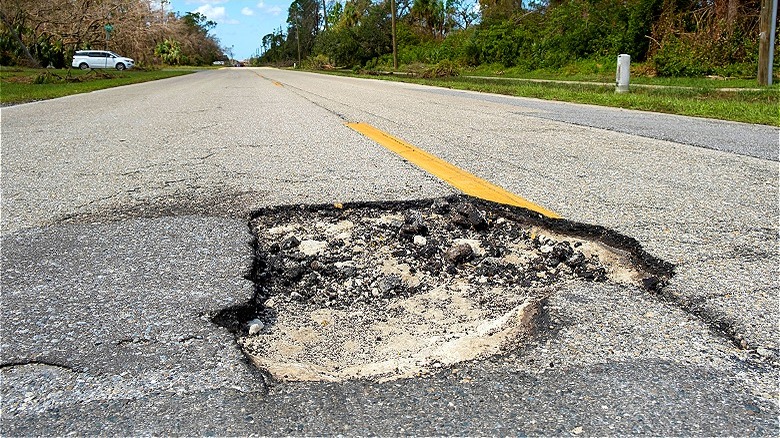Which State Has The Highest Tax Burden?
While calculating the different taxes you probably pay in a given year can be tricky, understanding the bigger picture of how these taxes might affect you is important. A particularly important ratio to keep in mind when it comes to your taxes is your tax burden, or the proportion of your income you pay toward state and local taxes. This differs from an individual's tax rate, which can vary depending on income and filing status. Since each state, county, and even city can have varying taxes, there is also broad variability when it comes to tax burden. The state with the highest tax burden in the U.S. is New York, with a 12.47% tax burden in 2023.
Hawaii, meanwhile, follows closely behind New York with a tax burden of 12.31%. This means that residents of both of these states face higher taxes than residents of low-tax-burden states like Alaska and Delaware — and they might feel they're being overtaxed. In fact, according to the Pew Research Center, 38% of people surveyed in 2023 reported being bothered a lot by the amount they personally paid in taxes. However, while a higher tax burden might feel unfair, it's important to remember just what our taxes are meant for. From social programs to infrastructure, the tax burden in a state is also a reflection of that state's priorities for its residents.
Why the tax burden is higher in some states
There are three tax types that impact a state's tax burden: property taxes, personal income taxes, and sales and excise taxes. These combined taxes can cause the tax burden in each state to vary, however, it doesn't mean a state with a high tax burden is high in all three categories. A good example is New York, the state with the highest tax burden. According to WalletHub, New York's property tax burden in 2023 was 4.36%, which was the fifth-highest rate in the country. The state's individual income tax burden, meanwhile, was 4.72%, the highest in the country. However, New York's total sales tax and excise tax burden ranked 24th in the country at 3.39%. The combination of these three factors led to New York's ranking as the state with the top overall tax burden, but it wasn't uniform across all three categories.
Current tax burden rates are far and away higher than in recent history. Tax burdens since 2020 have been higher than in any other year since 1978. This is due in large part to the rapid economic changes that occurred as a result of the pandemic. Both taxable income and property values rose significantly faster than the net national product, which caused tax burdens to rise across the U.S. However, recent regressive tax cut pushes have led one in five states to reduce their income tax rates, a decision that will ultimately negatively affect the residents in those states.
Can you avoid paying a higher tax burden?
Despite the rhetoric and school of thought that people might leave in the face of state tax rates, data doesn't support the idea that state tax levels actually affect where people might move to. The Center on Budget and Policy Priorities has found that employment opportunities, family, and housing prices have the biggest impact on where and why people move. A key consideration, if you are thinking of moving to another state, is that many of the states with higher tax burdens also offer generally higher pay opportunities. And so while the tax burden might be higher, you could end up earning enough to make up for or even exceed the difference of the higher tax burden in a given state.
Taxes get a bad rap, and many Americans might hope to pay less or even no taxes. Yet, perhaps one of the biggest issues with a state deciding to either cut existing taxes or simply not implement taxes in the first place is the lack of funds for necessary infrastructure. Take Alaska, for example; the state with the lowest tax burden in the country also ranks as the second-worst state for infrastructure. From power outages to a lack of broadband access to structurally deficient bridges, it's no wonder Alaska has deep infrastructure issues when you consider the state has no income tax, plus one of the lowest total sales and excise tax rates. This puts an additional burden on the state's residents who must live with increased power outages and terrible roads.


